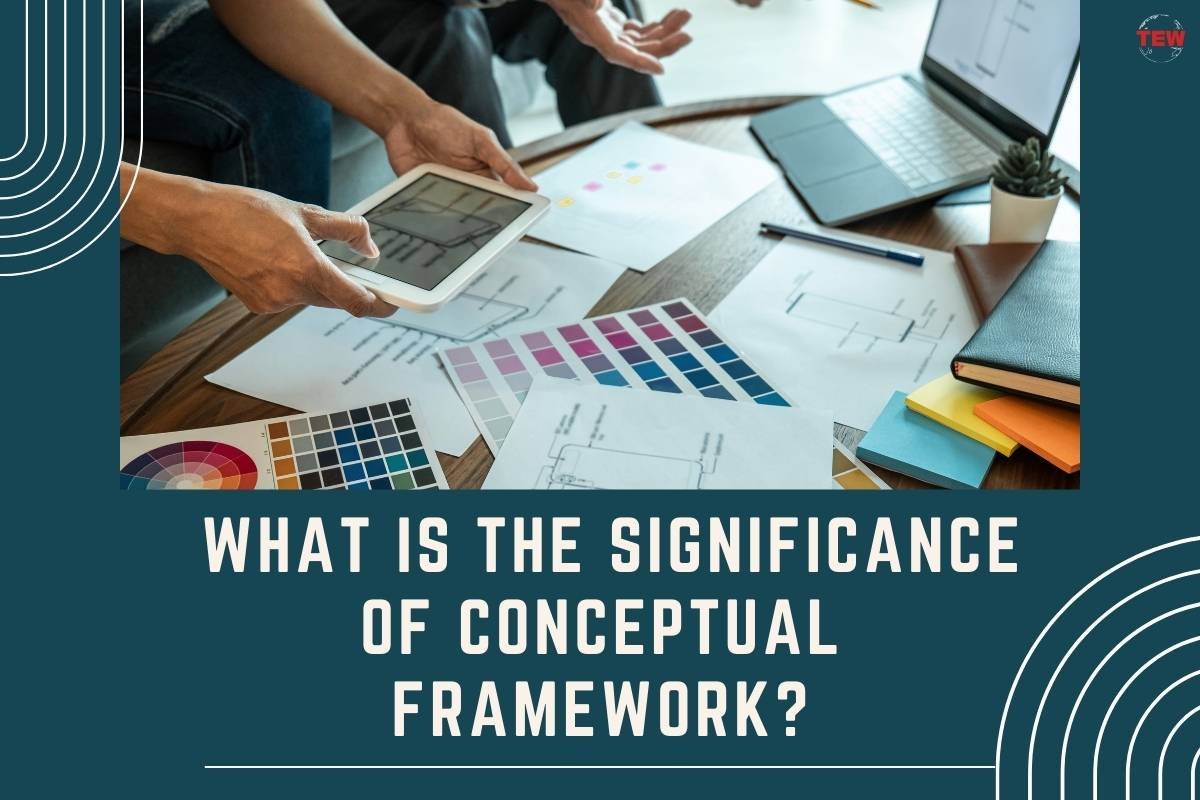In the realm of academia, research, and various professional disciplines, the term “conceptual framework” holds paramount importance. It serves as the intellectual scaffolding upon which the structure of a study or project is built, providing a guiding framework that shapes the understanding, analysis, and interpretation of complex phenomena. This article aims to unravel the multifaceted significance of frameworks, delving into their definition, components, and the diverse domains in which they play a pivotal role.
Definition:
At its core, a conceptual framework is a theoretical structure that outlines the key concepts, variables, relationships, and assumptions underlying a study or project. It acts as a roadmap, offering a systematic approach to organizing and interpreting information. Whether in the field of research, education, business, or any other domain, it serves as the intellectual foundation that informs the design, execution, and analysis of a project.
Components of any Framework
Key Concepts and Variables: The framework begins with the identification and definition of the central concepts and variables relevant to the study. These are the building blocks that form the basis of the research inquiry.

Literature Review: An integral part of the framework involves reviewing existing literature to identify theories, models, and empirical studies related to the topic. This helps in grounding the study in existing knowledge and identifying gaps that the research aims to address.
Theoretical Framework: The conceptual framework often incorporates a theoretical framework, which provides a broader perspective on the phenomena under investigation. Theoretical frameworks draw on established theories and conceptual models that offer insights into the relationships between variables.
Hypotheses or Research Questions: Based on the identified variables and theoretical underpinnings, researchers formulate hypotheses or research questions. These serve as the guiding inquiries that the study seeks to answer or test.
Assumptions and Constraints: Every framework operates within a set of assumptions and constraints. These may include assumptions about the behavior of variables, the context of the study, or limitations in terms of resources and scope.
Applications in Research:
Guiding Research Design
In the realm of research, every framework plays a crucial role in shaping the design of a study. It provides a clear rationale for the selection of variables, the establishment of relationships, and the overall methodology employed. Researchers use the conceptual framework to define the scope of their study, ensuring that their work aligns with existing knowledge and contributes meaningfully to the field.
Facilitating Data Analysis

As data is collected and analyzed, the conceptual framework serves as a lens through which researchers interpret their findings. It helps in identifying patterns, explaining relationships between variables, and drawing conclusions based on a solid theoretical foundation. This ensures that the research outcomes are not merely descriptive but are deeply rooted in a conceptual understanding of the phenomena studied.
Enhancing Communication of Findings
When presenting research findings, a well-defined conceptual framework enhances the clarity and coherence of the research narrative. It allows researchers to communicate the rationale behind their study, the theoretical perspectives guiding their work, and the implications of their findings. This facilitates the integration of new knowledge into the existing body of literature.
Educational Context
Beyond research, frameworks are widely employed in the field of education. They serve as instructional tools that guide curriculum development, teaching strategies, and educational policies.
Curriculum Development
In education, a conceptual framework aids in the development of curriculum guidelines and learning objectives. It outlines the key concepts and skills that students are expected to acquire, providing educators with a roadmap for designing instructional materials and assessments.
Pedagogical Strategies
Teachers often rely on conceptual frameworks to inform their pedagogical strategies. By understanding the theoretical underpinnings of educational concepts, instructors can tailor their teaching methods to align with the desired learning outcomes.
Educational Policy

At the policy level, frameworks inform decisions related to educational standards, assessment criteria, and institutional goals. They guide policymakers in creating a coherent and effective educational system.
Business and Organizational Context
Frameworks are equally valuable in the business and organizational context, guiding strategic decision-making, organizational development, and performance evaluation.
Strategic Decision-Making
In business, conceptual frameworks aid in strategic decision-making by providing a structured approach to understanding market dynamics, consumer behavior, and competitive landscapes. They help organizations make informed choices that align with their long-term goals.
Organizational Development
For organizational development initiatives, frameworks guide leaders in understanding the dynamics of change, employee motivation, and the factors influencing organizational culture. This understanding facilitates the development and implementation of effective change management strategies.
Performance Evaluation
Such frameworks are instrumental in designing performance evaluation systems within organizations. By identifying key performance indicators and their interrelationships, businesses can assess their performance against predetermined benchmarks.
Challenges and Critiques
While conceptual frameworks offer valuable guidance, they are not immune to challenges and critiques. Some common considerations include:
Overemphasis on Theory: Critics argue that an overemphasis on theoretical frameworks may lead to an abstract and detached approach, potentially distancing researchers or practitioners from the real-world implications of their work.
Rigidity: In some cases, conceptual frameworks may be perceived as rigid structures that limit creativity and flexibility. Researchers and practitioners should strike a balance between structure and adaptability.
Lack of Consensus: In certain fields, there may be a lack of consensus regarding the most appropriate frameworks. This can lead to fragmentation within the literature and hinder the development of unified theoretical perspectives.
Conclusion
In conclusion, the framework serves as an indispensable tool across diverse disciplines, providing a structured approach to understanding, analyzing, and interpreting complex phenomena. From guiding research endeavors to informing educational practices and facilitating strategic decision-making in business, its applications are far-reaching. While not without challenges, the conceptual framework remains a fundamental element in the pursuit of knowledge, innovation, and informed decision-making. As we navigate the intricate landscapes of research, education, and business, the conceptual framework stands as a beacon, illuminating the path to deeper understanding and meaningful progress.




